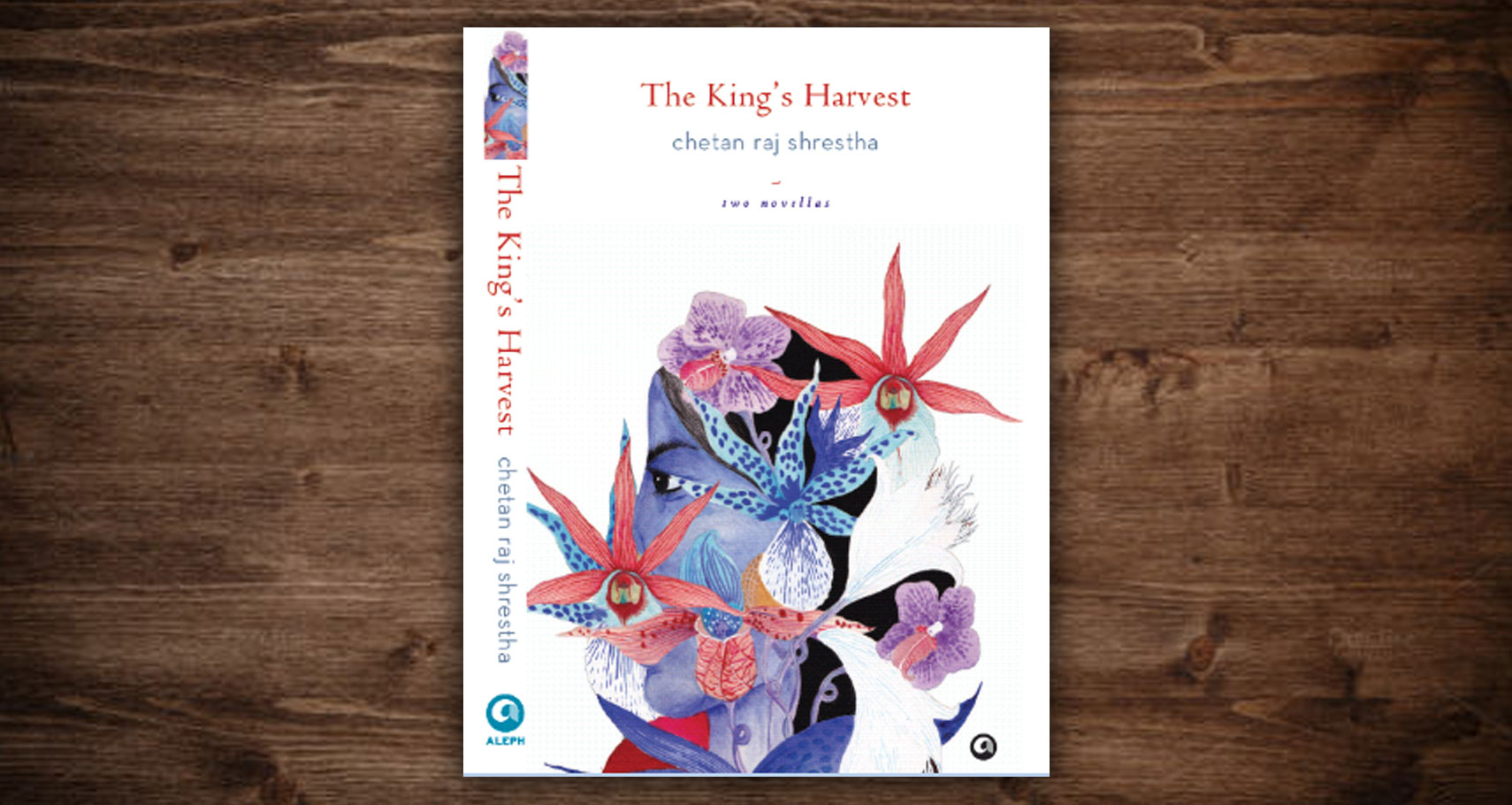Chetan Raj Shrestha’s The King’s Harvest (Aleph Book Company, 2013, 150 pages) contains the darkest humour alongside a lucid, ethereal beauty that describes the lay of the Sikkimese terrain and the Sikkimese mind. Shrestha’s particular skill is in drawing a crack on the surface of the narrative through which the threat of the subtext is felt. His characters and stories carry on as if unaware of the nuances and imperfections and bright possibilities in them. Shrestha slyly offers their secrets and fears with the delight of a craftsman watching a work realize its finest-wrought manifestation. In the two novellas here – An Open and Shut Case, and the The King’s Harvest – above and beyond the characters that inhabit the story, the writing also comes alive with quick wit and a nimbly projected but deep meditation. An Open and Shut Case is the obviously darker of the two novellas. It runs the gamut of the vile and the vicious: a husband hacked to death, incest between mourners, the game of bingo, estrangement, political intrigue, etc. Dechen OC, an astute, ambitious policewoman thrown into an embarrassing situation – her predecessor suspended for an extreme act of cruelty – faces another that tests even her moral ambivalence: a murderous attack, by a timid wife, on her husband, leaving him in forty-seven pieces. But even here there are moments of lightness, mostly at the expense of an Eastern European tourist who has inexplicably fallen for the Nepali tune, Resham Firiri. He finds it strange and overwhelming at first, but after he comes to appreciate its cadences, becomes obsessed. An Open and Shut Case functions similarly: it is of a strange texture, unwilling to expose the inner thoughts and obsessions of its characters, until suddenly the reader finds that the inner world of the story has already crystallized around him, that he has become obsessed with it. The King’s Harvest – the shorter of the two novellas, but significantly more ambitious, and accomplished – tells the story of Tontem, an enlightened fool of the sort that belongs in Buddhist fables, and his life of toil in the fantastical Lhaizalzed, an imaginary valley in the Himalayan foothills. Tontem and his delightfully named children Cimit, Chyadar, Batti and Turist till the land to pay the tithe they owe to the Chogyal of Sikkim. It is a timeless, invented world, with its own rigid morality to which Tontem is devoted. Shrestha balances the ironic with the insightful: at once, Tontem’s actions seem pitiably naïve, and profoundly wise. Tontem’s tribulations come off not only as crimes committed against him, but also as opportunities for the reader to arrive at deeper insights. Shrestha’s novellas contain a thoughtful architecture beneath their chaotic surface. There is humour there, and also a deeply felt, indelible sadness. Tontem’s story especially asks the reader to laugh and gauge the shift in the nature of each smile or laugh: from chuckles to the laugh that returns to punctuate our lives with the reminder that without such a laugh – saturated with unbearable grief – our world loses its verity, bit by bit. This review was originally published in La.Lit Vol. 3 in July 2014. You can pick up a copy in most bookshops in Nepal, buy a digital copy on Amazon, or email us at: editor@lalitmag to mail order a copy.















